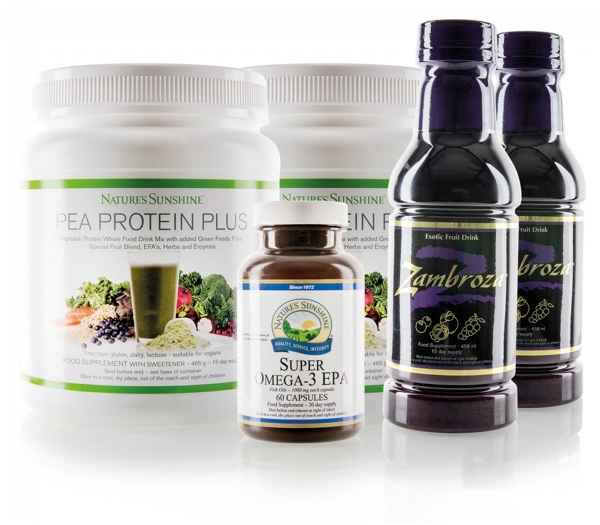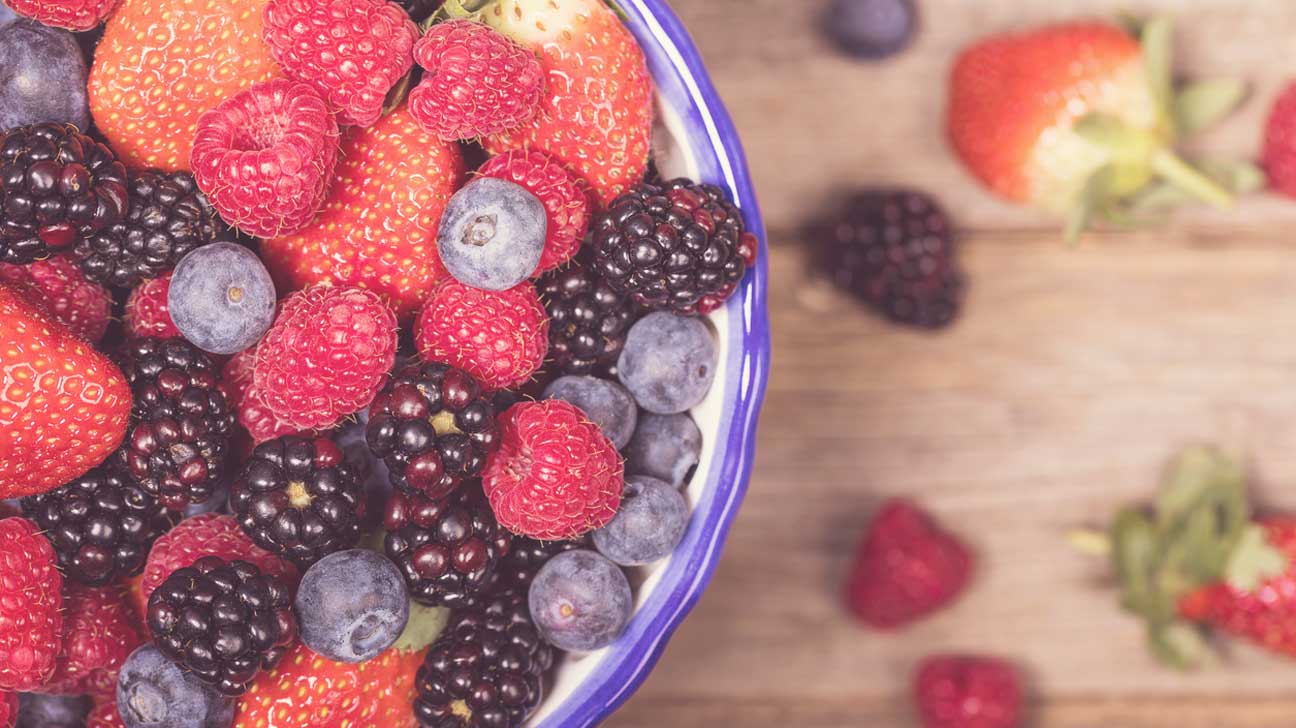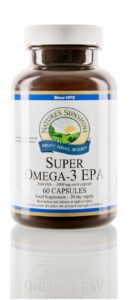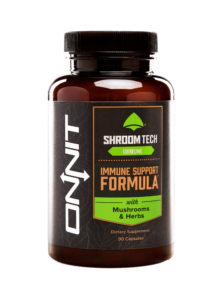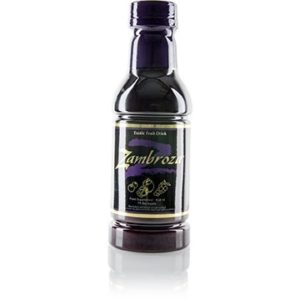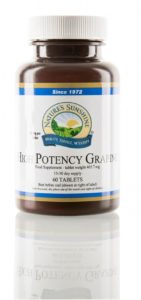I have been meaning to write this post for a while. In fact, I am planning to produce a FREE ebook to give away about how to modify your diet to reduce inflammation – that has been implicated in various diseases like arthritis, obesity and Alzeihmer’s – however Authority Nutrition has somewhat beaten me to he punch by writing ‘The 10 Best Foods to Eat If You Have Arthritis’, so instead of reinventing the wheel, I have posted the article below, with a few of my own comments.
Keep an eye out for that free ebook, coming soon!
Enjoy!
Scott
If you have arthritis, you know just how devastating this condition can be.
Arthritis is a term for a class of diseases that cause pain, swelling and stiffness in the joints. It can affect people of all ages, genders and ethnic backgrounds.
There are many different types of arthritis. Osteoarthritis is one type, which develops in joints with overuse. Another type is rheumatoid arthritis, an autoimmune disease in which your immune system attacks your joints (1, 2).
Fortunately, there are many foods that can ease inflammation and may help relieve some of the joint pain associated with arthritis.
In fact, one survey found that 24% of those with rheumatoid arthritis reported that their diet had an impact on the severity of their symptoms (3).
This article will look at 10 of the best foods to eat if you have arthritis.
1. Fatty Fish
Fatty fish varieties such as salmon, mackerel, sardines and trout are high in omega-3 fatty acids, which have been shown to have potent anti-inflammatory effects.
In one small study, 33 participants were fed either fatty fish, lean fish or lean meat four times each week. After eight weeks, the fatty fish group had decreased levels of specific compounds related to inflammation (4).
An analysis of 17 studies found that taking omega-3 fatty acid supplements decreased joint pain intensity, morning stiffness, the number of painful joints and use of pain relievers in patients with rheumatoid arthritis (5).
Similarly, a test-tube study showed that omega-3 fatty acids reduced several inflammatory markers that are involved in osteoarthritis (6).
Fish is also a good source of vitamin D, which can help prevent deficiency. Multiple studies have found that rheumatoid arthritis may be associated with low levels of vitamin D, which could contribute to symptoms (7, 8).
The American Heart Association recommends including at least two servings of fatty fish in your diet each week to take advantage of the beneficial anti-inflammatory properties (9).
Arthritis UK recommends that those suffering from arthritis consume 2.7g or 2700mg of omega-3 fatty acids to get an anti-inflammatory effect. That is, of the active ingredients EPA (eicosapentaenoic acid) and DHA (docosahexaenoic acid), not 2.7g of the fish oil.
Nature’s Sunshine’s Super Omega-3 EPA is a potent Omega-3 supplement, guaranteed free from radiation, heavy metals, and forms of marine pollution, that provides 760mg of EPA and 380mg DHA per daily dose of two capsules.
ONNIT Krill Oil contains 240mg per 2 softgels, incorporated in phosphatidylcholine, making it simpler and easier for the intestines to absorb and acts on brain health more efficiently than those incorporated in triglycerides. It also contains the important carotenoid, astaxanthin.

Summary: Fatty fish is high in omega-3 fatty acids and vitamin D, both of which may be beneficial for reducing inflammation and the severity of arthritis symptoms.
2. Garlic
Garlic is jam-packed with health benefits.
In some test-tube studies, garlic and its components have been shown to have cancer-fighting properties. They also contain compounds that may lower the risk of heart disease and dementia (10, 11).
Additionally, garlic has been shown to have an anti-inflammatory effect that may help decrease symptoms of arthritis.
In fact, some research has shown that garlic may enhance the function of certain immune cells to help strengthen the immune system (12).
In one study, researchers analyzed the diets of 1,082 twins. They found that those who ate more garlic had a reduced risk of hip osteoarthritis, likely thanks to garlic’s strong anti-inflammatory properties (13).
Another test-tube study showed that a specific component in garlic could decrease some of the inflammatory markers associated with arthritis (14).
Adding garlic to your diet could benefit both arthritis symptoms and overall health.
Summary: Human and test-tube studies have found garlic may possess anti-inflammatory properties, and that eating it may be associated with a decreased risk of osteoarthritis.
3. Ginger
Besides adding a burst of flavour to teas, soups and sweets, ginger may also help ease the symptoms of arthritis.
A 2001 study assessed the effects of ginger extract in 261 patients with osteoarthritis of the knee. After six weeks, 63% of participants experienced improvements in knee pain (15).
One test-tube study also found that ginger and its components blocked the production of substances that promote inflammation in the body (16).
Another study found that treating rats with ginger extract decreased levels of a specific inflammatory marker involved in arthritis (17).
Consuming ginger in fresh, powdered or dried form may reduce inflammation and aid in reducing symptoms of arthritis.
Summary: Ginger has been shown to reduce symptoms of arthritis. Test-tube and animal studies have also found it may decrease inflammation, but more research in humans is needed.
4. Broccoli
It’s no secret that broccoli is one of the healthiest foods out there. In fact, it may even be associated with reduced inflammation.
One study that looked at the diets of 1,005 women found that the intake of cruciferous vegetables like broccoli was associated with decreased levels of inflammatory markers (18).
Broccoli also contains important components that could help reduce symptoms of arthritis.
For example, sulforaphane is a compound found in broccoli. Test-tube studies have shown that it blocks the formation of a type of cell involved in rheumatoid arthritis development (19).
An animal study also found that sulforaphane could reduce the production of certain inflammatory markers that contribute to rheumatoid arthritis (20).
While more studies in humans are needed, these test-tube and animal study results show that the compounds in broccoli may help decrease symptoms of arthritis.
Summary: Broccoli has been associated with reduced inflammation. It also contains sulforaphane, which may have anti-inflammatory properties, according to test-tube studies. More research is needed to look at the effects of broccoli in humans.
5. Walnuts
Walnuts are nutrient-dense and loaded with compounds that may help reduce the inflammation associated with joint disease.
One analysis of 13 studies showed that eating walnuts was associated with reduced markers of inflammation (21).
Walnuts are especially high in omega-3 fatty acids, which have been shown to decrease the symptoms of arthritis (5).
In one study, 90 patients with rheumatoid arthritis took supplements of either omega-3 fatty acids or olive oil.
Compared to the olive oil group, those who received omega-3 fatty acids experienced lower levels of pain and were able to reduce their use of arthritis medications (22).
However, most existing research focuses on the effects of omega-3 fatty acids in general on arthritis. Further studies are required to learn more about the effects of walnuts, specifically.
Summary: Walnuts are high in omega-3 fatty acids, which could alleviate arthritis symptoms as well as inflammation.
6. Berries
Tons of antioxidants, vitamins and minerals are crammed into each serving of berries, which may partially account for their unique ability to decrease inflammation.
In one study of 38,176 women, those who ate at least two servings of strawberries per week were 14% less likely to have an elevated level of inflammatory markers in the blood (23).
Additionally, berries are rich in quercetin and rutin, two plant compounds that boast a huge number of benefits for your health.
In one test-tube study, quercetin was found to block some of the inflammatory processes associated with arthritis (24).
Another study gave rats quercetin and rutin supplements, both of which decreased arthritis-related inflammation (25).
Fortunately, if you want to take advantage of these impressive health benefits, there’s a wide variety of berries to choose from. Strawberries, blackberries and blueberries are just a few options that can satisfy your sweet tooth and provide plenty of arthritis-fighting nutrients.
Nature’s Sunshine Zambroza® is high in antioxidant properties, and synergistically provide health benefits far greater than the individual benefits of each of the ingredients.
Mangosteen is one of Zambroza’s special ingredients – it contains the highest known level of Xanthones – a family of plant nutrients known to be very powerful antioxidants, and Blueberry, which is one of the richest and most easily absorbed sources of antioxidant.
Add to this combination a blend of Wolfberry, Apple Extract, Raspberry, Concord Grape, Grape Seed, Grape Skin, Green Tea, and Red Berry, and you have an outstanding formula rich in Polyphenols, Xanthones and Flavonoids, that provides you with a powerhouse of antioxidants!
Zambroza® is one of Nature’s Sunshine’s top selling products worldwide – a great tasting, synergistic blend that helps to increase vital energy and replenish the body. No artificial colours, sweeteners or flavours.
Summary: Berries contain antioxidants that have been shown to decrease arthritis-related inflammatory markers in test-tube and animal studies.
7. Spinach
Leafy greens like spinach are full of nutrients, and some of their components may actually be able to help decrease inflammation caused by arthritis.
Several studies have found that a higher intake of fruits and vegetables is linked to lower levels of inflammation (26, 27).
Spinach, in particular, contains plenty of antioxidants as well as plant compounds that can relieve inflammation and help fight disease (28).
Spinach is especially high in the antioxidant kaempferol, which has been shown to decrease the effects of the inflammatory agents associated with rheumatoid arthritis (29).
A 2017 test-tube study treated arthritic cartilage cells with kaempferol and found it reduced inflammation and prevented the progression of osteoarthritis (30).
However, more research is needed to study the effects of spinach and its components on humans with arthritis.
Summary: Spinach is rich in antioxidants, including kaempferol. Test-tube studies have found that kaempferol can reduce inflammation and slow the progression of osteoarthritis.
8. Grapes
Grapes are nutrient-dense, high in antioxidants and possess anti-inflammatory properties.
In one study, 24 men were given either a concentrated grape powder that was equivalent to about 1.5 cups (252 grams) of fresh grapes or a placebo daily for three weeks. The grape powder effectively decreased levels of inflammatory markers in the blood (31).
Additionally, grapes contain several compounds that have been shown to be beneficial in the treatment of arthritis. For example, resveratrol is an antioxidant present in the skin of grapes.
In one test-tube study, resveratrol showed potential for helping prevent the thickening of the joints associated with arthritis by blocking the formation of rheumatoid arthritis cells (32).
Grapes also contain a plant compound called proanthocyanidin, which may have promising effects on arthritis. For example, one test-tube study showed that grape seed proanthocyanidin extracts reduced inflammation related to the disease (33).
Nature’s Sunshine’s Grapine is an optimal blend of proanthocyanidins derived from grape seeds and maritime pine bark. Grapine’s proanthocyanidins help protect cells from oxidative damage and are quickly absorbed into the body.
Keep in mind that these are test-tube studies using concentrated doses of antioxidants far greater than the amount you would consume in a typical serving.
Further research is needed to determine how these results may translate to humans.
Summary: Grapes have anti-inflammatory properties and contain compounds that may help reduce inflammation. However, additional studies in humans are needed.
9. Olive Oil
Well-known for its anti-inflammatory properties, olive oil may have a favorable effect on arthritis symptoms.
In one study, mice were fed extra-virgin olive oil for six weeks. This helped stop the development of arthritis, reduce joint swelling, slow cartilage destruction and decrease inflammation (34).
In another study, 49 participants with rheumatoid arthritis consumed either fish oil or an olive oil capsule each day for 24 weeks.
At the end of the study, levels of a specific inflammatory marker had decreased in both groups — by 38.5% in the olive oil group and between 40–55% in the fish oil group (35).
Another study analyzed the diets of 333 participants with and without rheumatoid arthritis, finding that olive oil consumption was associated with a lower risk of the disease (36).
Although more research is needed on the effects of olive oil on arthritis, including olive oil and other healthy fats in your diet can definitely benefit your health, and may also reduce arthritis symptoms.
Summary: Olive oil has been shown to reduce inflammation and may be associated with a lower risk of arthritis. One animal study found that it may slow arthritis progression and ease symptoms.
10. Tart Cherry Juice
Tart cherry juice is an increasingly popular beverage derived from the fruit of the Prunus cerasus tree.
This potent juice offers a wide array of nutrients and health benefits, and may even help reduce the symptoms of arthritis.
In one study, 58 participants received either two 8-ounce (237-ml) bottles of tart cherry juice or a placebo every day for six weeks.
Compared to the placebo, tart cherry juice significantly decreased symptoms of osteoarthritis and reduced inflammation (37).
In another study, drinking tart cherry juice for three weeks reduced the levels of inflammatory markers in 20 women with osteoarthritis (38).
Be sure to look for an unsweetened variety of tart cherry juice to make sure you don’t consume excess added sugar.
In combination with a healthy diet and other arthritis-fighting foods, a serving of unsweetened tart cherry juice per day may help decrease some of the symptoms of arthritis.
Summary: Studies show that tart cherry juice could lower inflammation and alleviate some symptoms of arthritis.
The Bottom Line
It’s clear that diet can play a major role in arthritis severity and symptoms.
Luckily, a variety of foods with powerful components may offer relief from inflammation and arthritis — while also promoting overall health.
Along with conventional treatments, eating a nutritious diet containing healthy fats, a few servings of fatty fish and plenty of produce may help reduce some symptoms of arthritis.
Related articles across the web
A nutritious, balanced diet is important in order to maintain good health, but for many, it is not always easy to achieve. Looking back over the last few decades it’s easy to see that our diets have changed considerably, and our busy, hectic, and stressful lifestyles, often lead us to eat for ‘convenience’ and not necessarily for ‘health’.Free Radicals, also known as ‘oxidants’ occur naturally in the body but can also be increased by environmental factors, such as exposure to pollution, smoke, pesticides, chemical cleaners and toxins. Stress can increase free radical production – even good things like exercise and sunshine can produce unwanted oxidants.
The ‘PRΩMEGA’ Daily Plus Pack is designed to help bridge any nutritional gaps in your daily diet with a one-month supply of three powerful daily nutrition products.
• Pea Protein Plus contains a vast array of healthful, nutrient-rich natural ingredients. Each serving provides 13g of vegetable protein in a comprehensive nutritional blend that offers generous amounts of a wide range of vitamins and minerals, nutrient-rich greens, fruits and herbs. This formula is sweetened with natural stevia, and only 110 calories per serving, Pea Protein Plus may also be used as a meal replacement. Free from dairy, lactose, fat and gluten, this superb blend is perfectly suitable for vegans. Mix two level scoops of Pea Protein Powder with approximately 8oz of water or milk, and shake vigorously.
Pea Protein Plus is ideal for anyone wishing to increase their daily protein intake with an easily digestible, high-quality vegetable protein. Use daily as a nutritious, filling snack, a boost at breakfast, a post-workout shake, a mid-morning top-up, or a satisfying meal replacement for those on the go. Pea Protein Plus is great any time of the day, and however you take your shake, it will be bursting with natural goodness!
• Super Omega-3 EPA. Essential fatty acids (EFA’s) are just that – essential to life! We cannot manufacture these within our body, so we have to rely on obtaining what we need from our diet. As well as providing the building blocks for cell membranes, Omega-3 EFA’s have been found to have multiple health benefits for the whole body. Each capsule of Nature’s Sunshine’s Super Omega-3 EPA is hermetically sealed during encapsulation, and two capsules provide 760mg EPA and 380mg DHA, with natural lemon oil for a pleasant taste. Take 2 capsules with a meal once a day.
• Zambroza natural juice blend is a unique and powerful combination of ten natural ingredients each naturally rich in vitamin C, antioxidants, xanthones, polyphenols and flavonoids, which help to combat free radicals and contribute to immune function. Not only will you feel revitalised but these antioxidants have a powerful effect on the health of the skin helping you to look great too – a great tasting, synergistic blend that helps to increase vital energy and replenish the body. Suitable for vegetarians and vegans. Take 15ml twice daily.

